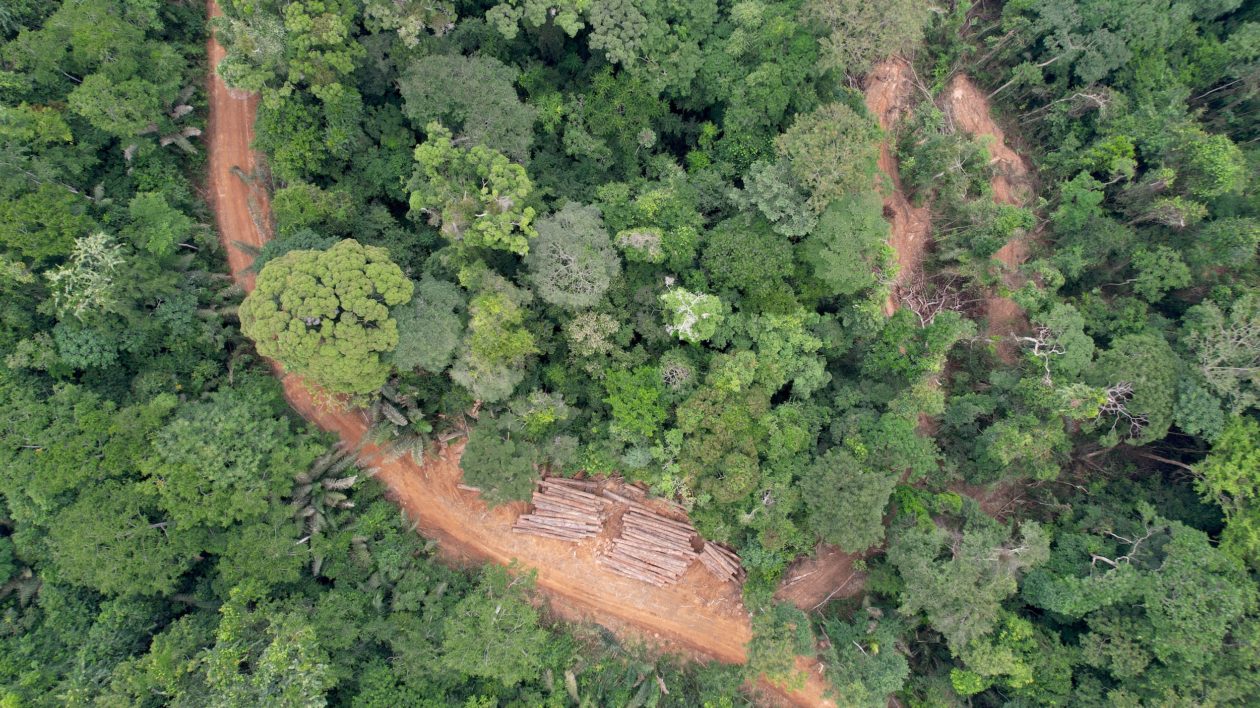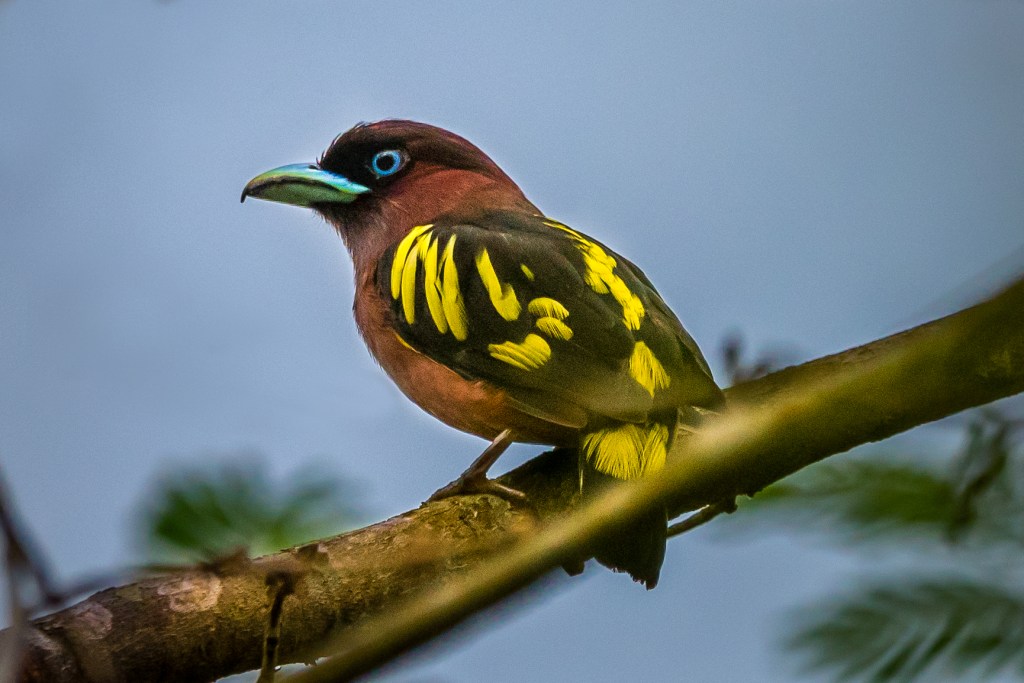Well-managed logging concessions can play a critical role in species conservation. A new study quantifies the conservation responsibility of the tropical timber industry, finding that up to 32% of the global range and up to 100% of the national range of sensitive bird species within the study countries are leased by logging companies.
The Gist
The researchers examined existing studies to identify sensitive bird species whose populations are known to decline significantly after selective logging. Then, for each of those species, they quantified the proportion of their global and national range that overlaps with logging concessions in 9 countries in tropical Africa and Southeast Asia.
That allowed the research team to quantify the conservation responsibility of tropical timber concessions — just how much of a species’ range is impacted by a particular country or logging concession.
Their results, published recently in Conservation Letters, show that up to 32% of the global range and 100% of the national range of sensitive species are leased by logging concessions. Furthermore, individual concessions overlap with the ranges of up to 25 sensitive species and more than 500 total bird species.
The Big Picture
Conservationists can’t depend on protected areas alone to safeguard biodiversity. Just 6 to 18% of the world’s tropical forests are set aside in protected areas, whereas more than half are designated for timber production.
Most timber extraction in tropical forests is done by selective logging, which causes smaller declines in biodiversity than other types of land use. These forests can maintain their biodiversity and continue to provide habitat, alongside resource production, if logged responsibly.
That’s why the timber industry can tip the scales toward survival or extinction for many tropical species. By quantifying conservation responsibility, analyses like these can help governments, forest managers, sustainability certifiers, and consumers turn that responsibility into an opportunity for action.

The Takeaway
“Every time I remember how much of the world’s forests is actually in the hands of the logging industry I hold my breath, both because of how much is at stake in terms of our climate and biodiversity, but also in terms of the huge potential to do things better, at all scales,” says Zuzana Burivalova, a tropical forest ecologist at the University of Wisconsin-Madison and lead author on the research.
Governments could take conservation responsibility into account when determining how much logging is allowed, as well as the size, placement, and management of logging concessions. At the local level, logging companies can improve biodiversity outcomes by slowing logging intensities, implementing longer logging cycles or reduced impact logging, protecting ecological legacies such as hollow trees, and creating narrower and fewer roads.
“Whether it’s through social or community forestry projects, or responsibly managed industrial logging, forestry can be far better than monoculture plantations for wildlife and climate,” Burivalova adds. “At the same time though, if logging is done irresponsibly, the losses can be high, both for biodiversity and for the local communities who rely on the surrounding forests for clean water and many other forest services.”
Burivalova also says that we need to consider what happens to concessions that are unused or unprofitable. Her previous research shows that countries like Indonesia have many logging concessions with high conservation responsibility that are currently inactive. Those concessions can provide an opportunity for conservation if we can ensure those forests aren’t lost to illegal deforestation and degradation.
“People often ask me if logging in tropical forests is good or bad for the biodiversity,” says Burivalova. “My answer — which is also a central message of our paper — is that it can be both, depending on how it’s done.”




Logging decimated the old growth forests of the American west, I don’t hold out much hope for them “doing the right thing” unless they are made. That goes for all the industry that poisoning our world. I am generally an optimist but the lack of regulation and the impunity of industry is dooming is all (ALL).